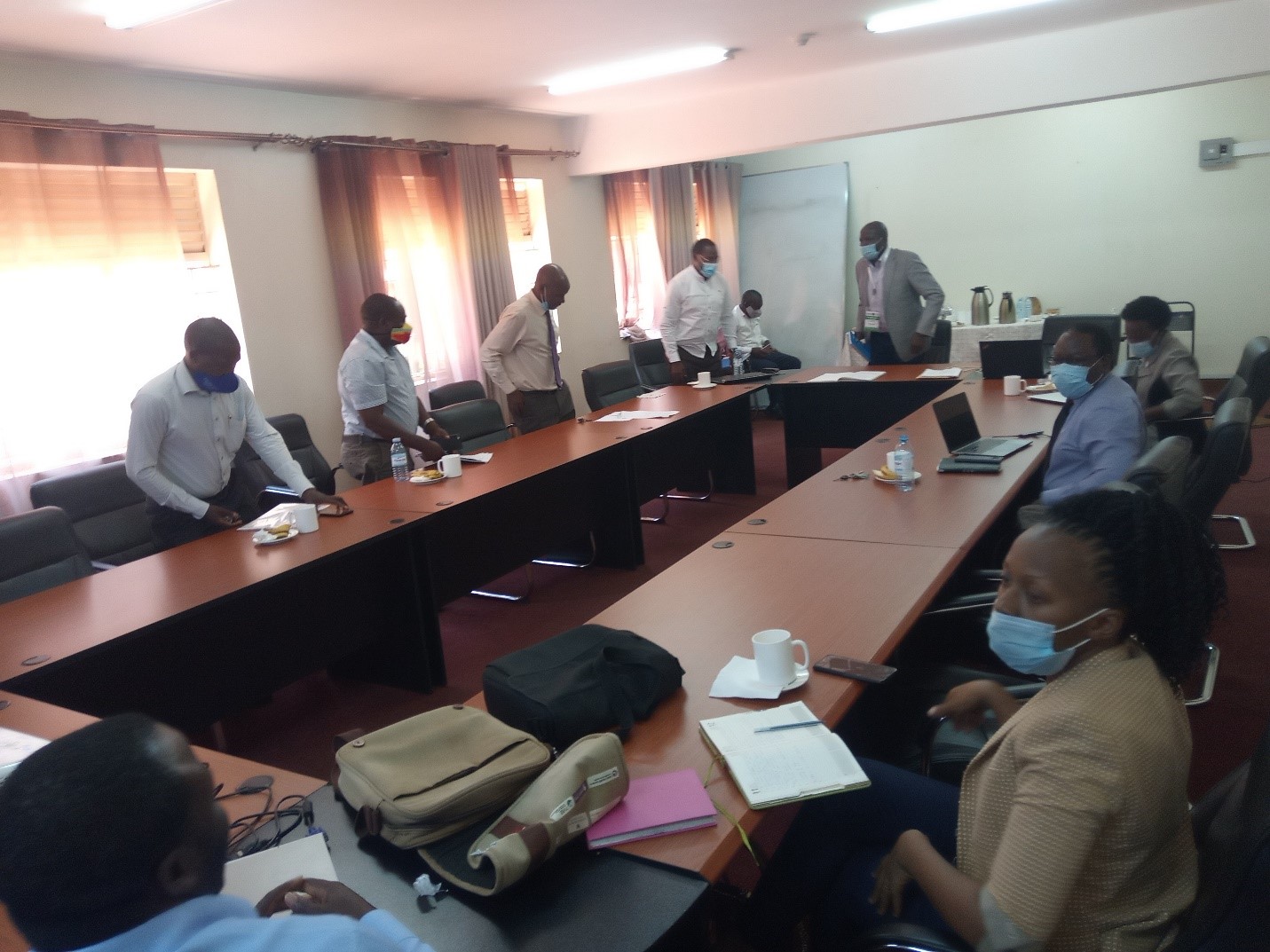
Makerere, Uganda’s premier university and one of the oldest and most prestigious Universities in Africa is taking another step to embrace the emerging topic of health economics by starting a health economics master’s program in the field soon.
The Makerere University School of Public Health’s (MakSPH) Health Economics master’s program is the first of its kind in Uganda and generally, the region, said Dr. Elizabeth Ekirapa-Kiracho, the Head of Department Health Policy Planning and Management.
The program aims to train students to address the skills gaps that have been manifested in the area of health economics and financing, health policy, and decision-making in Uganda and the region. It is being developed at Makerere University School of Public Health, with support from the Center for Health Economics (CHE, University of York, United Kingdom (UK).
According to Dr. Ekirapa, there are very few health economists on the continent and so this course will benefit not only Uganda but the continent as a whole.
“Uganda like other developing countries has scarce resources. Therefore, the existing resources need to be used as efficiently and as effectively as possible. This masters in Health economics will fill in this gap by training specialists who can guide resource allocation decisions to ensure that the most cost-effective interventions are utilized,” Dr. Ekirapa says,
She also notes that there is a lot of policy and decision-making on resource allocation, efficiency improvements, and optimization that requires skills and training in the area of health economics, majorly to apply economics tools to bear in addressing challenges within the health sector and other sectors. Currently, graduate training in Health Economics is mainly offered by Western Universities, albeit at a very high cost.
All across the African continent, the University of Cape Town currently offers a Diploma in Health Economics and an MPH-HE and Kinshasa School of Public Health in the Democratic Republic of Congo -DRC. Dr. Ekirapa observes that most of this training is received from outside Africa, which poses great challenges of program costs (fees, travel, and inconvenience), and only a few individuals receive the training often under sponsorship.
Hence, a need to increase access to this specialized training by ensuring that costs are lowered through establishing and offering the program locally.
Professor Freddie Ssengooba, a Health Policy & Systems Management expert at MakSPH, notes that establishing this program in Uganda will therefore help expand opportunities for training at a relatively less cost, and help to build a critical mass that can support policy and decision-making, and research in Uganda, the region, and globally.

From MakSPH: Dr. Elizabeth Ekirapa-Kiracho, Prof. Freddie Ssengooba, Mr. Mayora Chrispus, Ms. Brenda Nakimuli & Mr. Richard Ssempala. (From School of Economics: Prof. Edward Bbaale, Dr. Tom Mwebaze, Dr. Ibrahim Mukisa, Dr. John Bosco Nyanzi & Dr. Fred Matovu
So far, the Health Economics curriculum process has been elaborate, stretching for more than three years now and involving a cross-section of stakeholders, including The Makerere University School of Economics, Economic Policy Research Center, Ministry of Health, World Health Organization, Infectious Disease Institute IDI, MRC-UVRI, and members from the civil society, private sector, and private consulting entities.
The consultation process is currently at the tail-end before the curriculum gets submitted to the University Senate for approval. The Health Economics program is expected to be delivered by Makerere School of Economics in collaboration with Makerere School of Economics.
On March 11, 2021, the two teams met to discuss emerging issues, enrolment credentials, quality control in content development and delivery, and how best preparations should be done in anticipation of the upcoming implementation should the curriculum be approved. Additional meetings between the two teams have been scheduled in the coming weeks to thresh out specific issues, but also discuss any additional areas of collaboration including research, and possible areas of Ph.D. Training.
Makerere University School of Public Health believes that a strong health system is one of the means by which a country can achieve effective and efficient health service delivery.
One of the key pillars of a robust health system is the capacity to generate and use the evidence to guide decision making, in areas relating to formulation and designing of appropriate health policies, reforms and interventions, effective health sector planning and management, equitable resource mobilization, and allocation, and efficient and equitable delivery of health services.

In Uganda, like in many developing countries, health policy formulation and health service delivery have remained relatively suboptimal partly due to limited use of evidence to guide these processes.
Most policy practitioners deployed within the planning departments of government are trained in Economics and a few have additional skills and knowledge in Health Economics. This could be related to the fact that health economics training is conducted by a few institutions in Africa and none in Uganda. It is apparent that deliberate efforts should be directed towards developing this capacity as well as utilizing it to further health sector development.
Also, the current medical training, and to some extent public health training (MPH and MHSR) programs, in sub-Saharan Africa do not facilitate an in-depth understanding of the principles of Health Economics and their application in health systems management, planning, and policy, yet this is highly desirable for health experts, policy analysts and researchers.
Therefore, health policymakers and other systems decision-makers need to understand the economic impact of health care decisions and choices on the broader macroeconomics so as to analyze policy choices in the context of broader national policy development goals.
The Health Economics Master’s program offers students an opportunity to develop skills in economics, its application of economics to problems in health and health care. Students will acquire conceptual as well as analytical skills required to understand the complexities of health care systems and evaluate health care interventions and health policies.
The program also provides a unique opportunity for graduates to take leadership positions in the private and public sectors, international organizations like; the WHO, World Bank, etc.; national and international associations, consultancy firms, insurance companies, and such related institutions.

